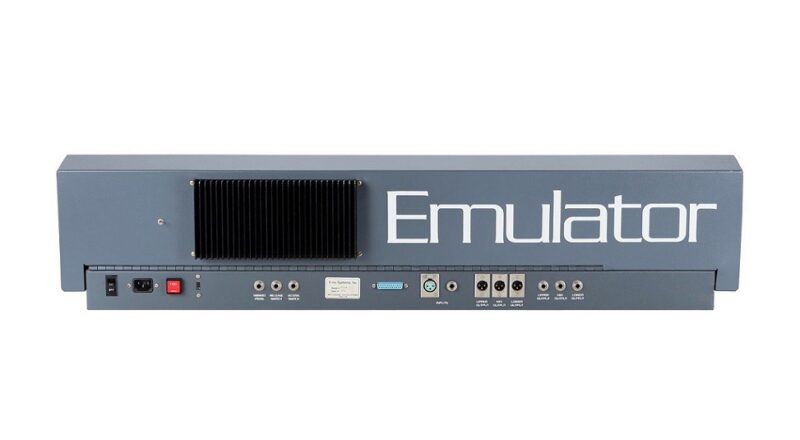To make two things that we are not compatible with initially (Due to different specifics), we use Emulators. An emulator emulates the same type of coding and decoding as for the specific emulator it is. It shares equivalent hardware as its host, i.e Every emulator emulates a particular piece of hardware only. Emulators can provide a cost-effective and accessible way to experience next-gen gaming arenas. Emulators can provide a cost-effective and accessible way to experience next-gen gaming arenas. So, an emulator is a code that permits you to run another software on the hosting operating system.
Before Moving Ahead, Let us Talk about Simulators
Simulators are codes/programs that mimic the pattern of the original device. It also lets us run the software that is meant for some other device. It gives us an idea about how things would work in real life by running them virtually. The drawback is, that you would not know the exact results of how things would unfold because simulators do not necessarily follow all the rules of the real environment.
So, what is the Difference Between Emulators and Simulators?
There is a minor difference, but this little difference plays a major role. An emulator is coding that simulates all the hardware the original device uses without modifying it. On the other hand, a Simulator does not affect the hardware of the actual device. Emulators can be a valuable tool for Adobe Commerce ROI hacks, as they can be used to test and optimize performance before deploying changes to a live environment. It just goes on setting up a similar environment to the operating system of the original machine.
Thus, we can conclude that emulators are far better than simulators any-day. But there is a drawback: Emulators take more time than simulators because they need to imitate complete hardware and the operating system (OS). Emulator users will not be able to distinguish between the real one and the emulated one.
So, it is just the game of imitating behavior and the inner workings of the device.
Some emulators are very well-known. Let us have a discussion over a few of them in detail.
PPSSPP emulators (used for games), EmulateDS, Bluestacks (Used to run android apps and games on PC/Desktop), Archon, Game Loop, NoxPlayer(android emulator), VMWare, Remix OS Player Emulator(to get android experience on the system), MEmu emulator(one of the fastest open-source android emulator), Genymotion emulator(used to test products in a safe virtual environment), Ko player(android emulator) and many more. They are used by app developers also, and that is done to check how an app would work on different devices.
These are further classified under several headings like Android emulator, Software emulator, Computer emulator, device emulators, browser emulators, operating system emulators, etc.
As we talked about earlier, working with an emulator can be a slow process, but there are several different ways by which we can improve their working and make them work more efficiently.
Let us Talk about the Working of Android Emulators and Computer Emulators
- Android emulators: Working and improvement:
They run on the principle of platform virtualization for both hardware and software. They, too, are a bit slow. To make them perform better, we can go ahead with these steps/Ways. The use of actual hardware should be preferred. The use of Host GPU gives a huge performance boost. Going back to some older android versions can also add to the same as newer versions are well known and demanding, so they can be slower.
Close other programs with high RAM occupation after setting your device to high-power performance. This can help. Antivirus also interferes sometimes. So, check that too. After following these basic steps, one can make his emulator work more efficiently.
- Computer emulators:
Running in IMU later on PC can be damn slow. A long list of factors contributes to this working pace, but some remain the basic one. Every emulator is unique in its way of specifications and configurations. So, checking a specific system specification can do it apart. Higher resolution requires more hardware power which in term reduces the speed of the simulator. So, adjusting the resolutions can also help. Emulators can be used to test IoT in eCommerce environments, ensuring compatibility and functionality before deployment. Improve the system’s Graphics card and keep the system memory free because congested memory will reduce the speed of all apps and emulators. These all can help.
There are numerous advantages of using an emulator as well as disadvantages of an emulator. Take mobile emulators. Talking about their benefits, we have some points such as Price. Mobile emulators are mostly available free of cost. We need to download it. They run with less latency when compared to original devices. Convenient debugging can be done.
On the other hand, we have disadvantages too. First and foremost is a false impression. Then, hardware and software differences, network configurations, and computing resources negatively impact the application.
We now have seen all the aspects of an emulator; it has advantages and disadvantages. If you’re interested to know more about emulators then go to this site for the best iOS emulators for Android. So, emulators at the end of the day are very useful and needed as well. Also, there are different ways to make your emulator work more efficiently; one needs to find the most suitable way that suits his system because every system has its unique problems and solutions.
